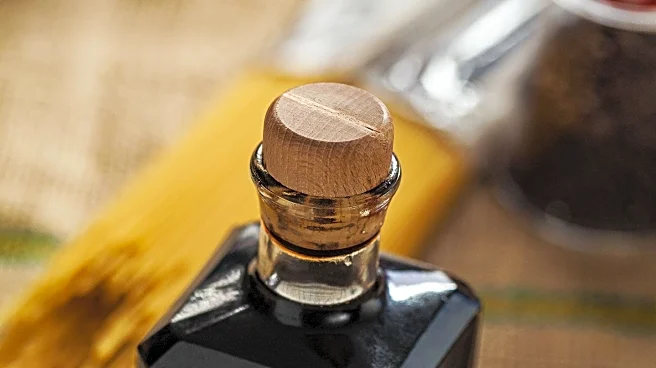What's Happening?
Researchers have developed a nanoparticle-enhanced vinegar that could potentially treat antibiotic-resistant infections. The study, conducted by teams from the University of Bergen, QIMR Berghofer, and Flinders University, found that adding carbon and cobalt nanoparticles to vinegar enhances its antimicrobial properties. This treatment was effective against drug-resistant bacteria such as Staphylococcus aureus and Escherichia coli in laboratory settings. The nanoparticles work by damaging bacterial cells, and the treatment was shown to be non-toxic to human cells. This innovation could be a significant step in combating antimicrobial resistance (AMR), a major global health threat.
Why It's Important?
The development of nanoparticle-enhanced vinegar represents a promising advancement in the fight against AMR, which poses a significant challenge to global health. As bacteria become increasingly resistant to existing antibiotics, new treatments are urgently needed to manage infections that are difficult or impossible to treat. This research highlights the potential of using nanoparticles to enhance traditional antimicrobial agents, offering a novel approach to tackling drug-resistant infections. If successful in clinical trials, this treatment could provide a cost-effective and accessible solution for managing chronic wounds and other infections, particularly in vulnerable populations.
What's Next?
The next steps for this research involve pre-clinical and clinical trials to assess the safety and efficacy of the nanoparticle-enhanced vinegar in human patients. If these trials are successful, the treatment could be developed into a commercial product for use in healthcare settings. The researchers also plan to explore the potential of this technology for other applications, such as disinfecting medical equipment and surfaces. The success of this innovation could encourage further research into the use of nanoparticles in antimicrobial treatments, potentially leading to new strategies for managing AMR.









